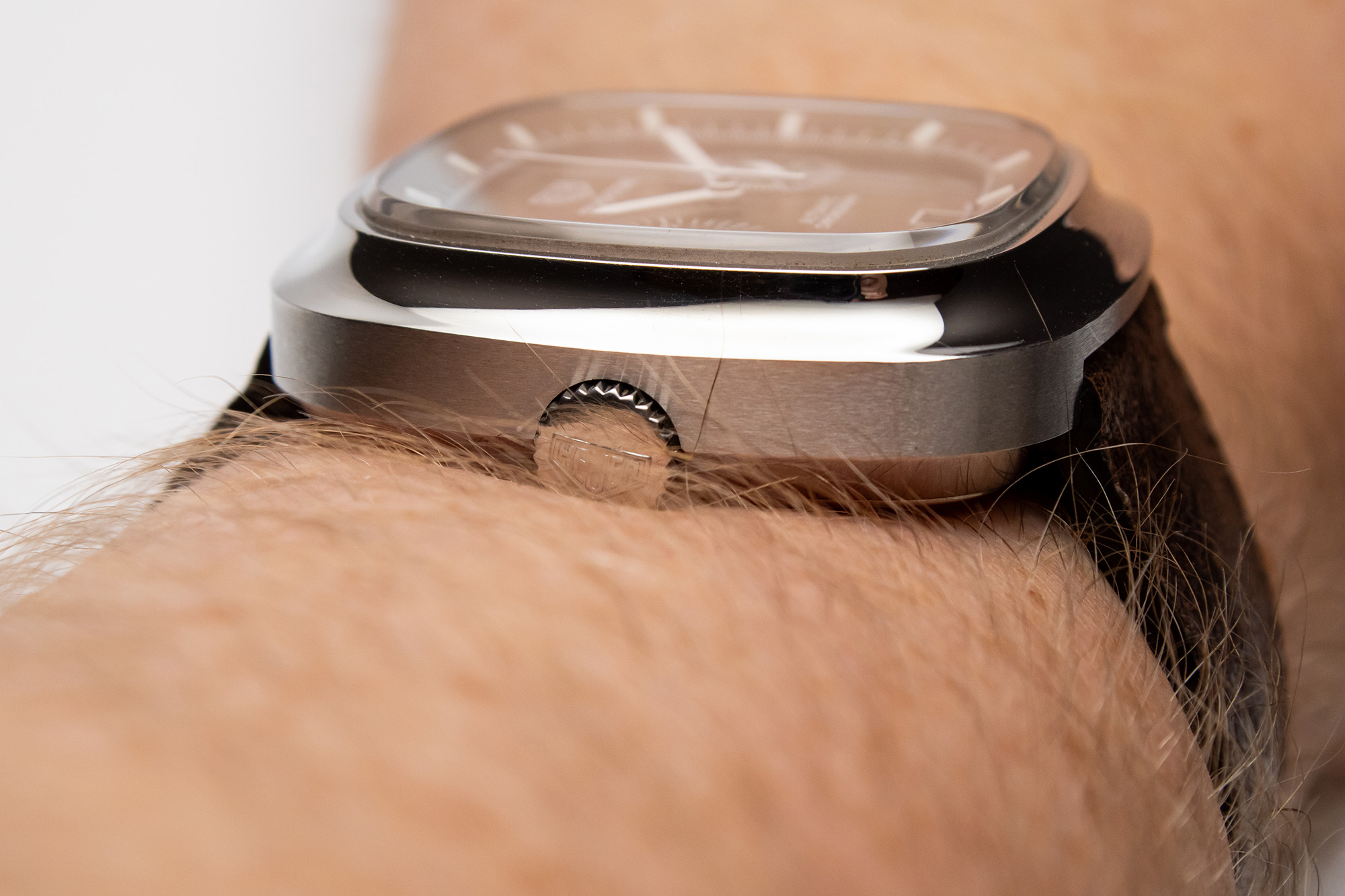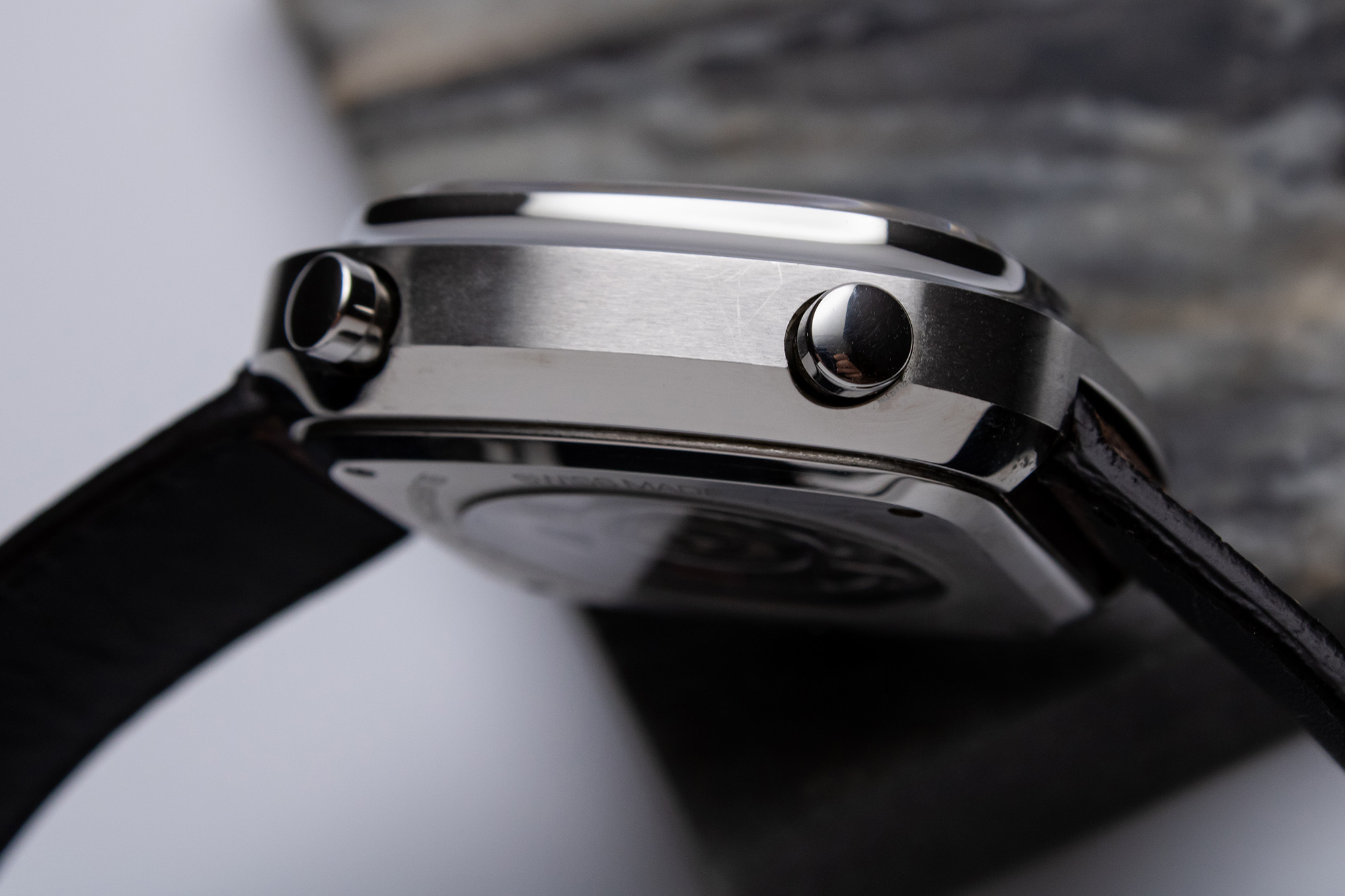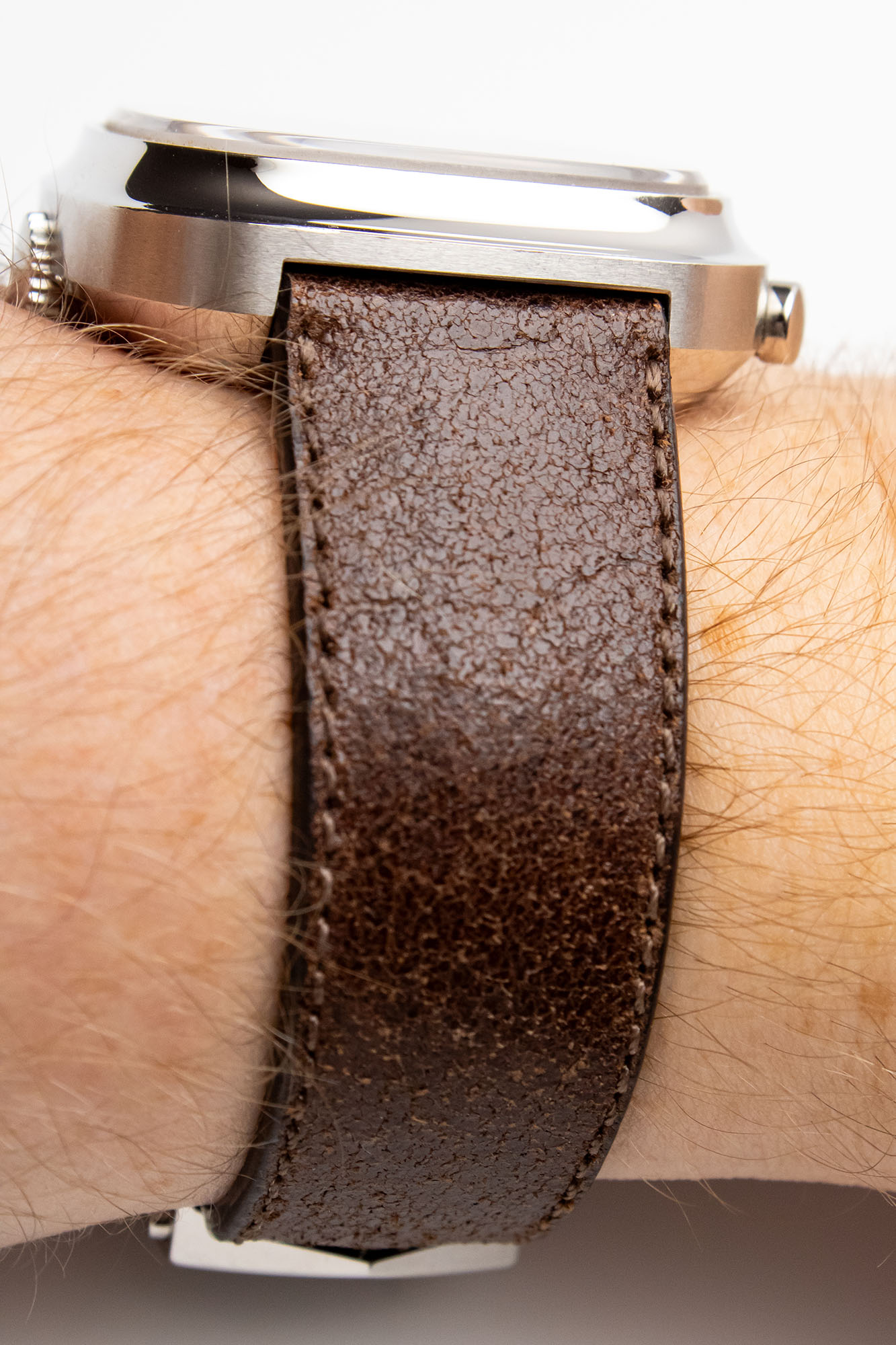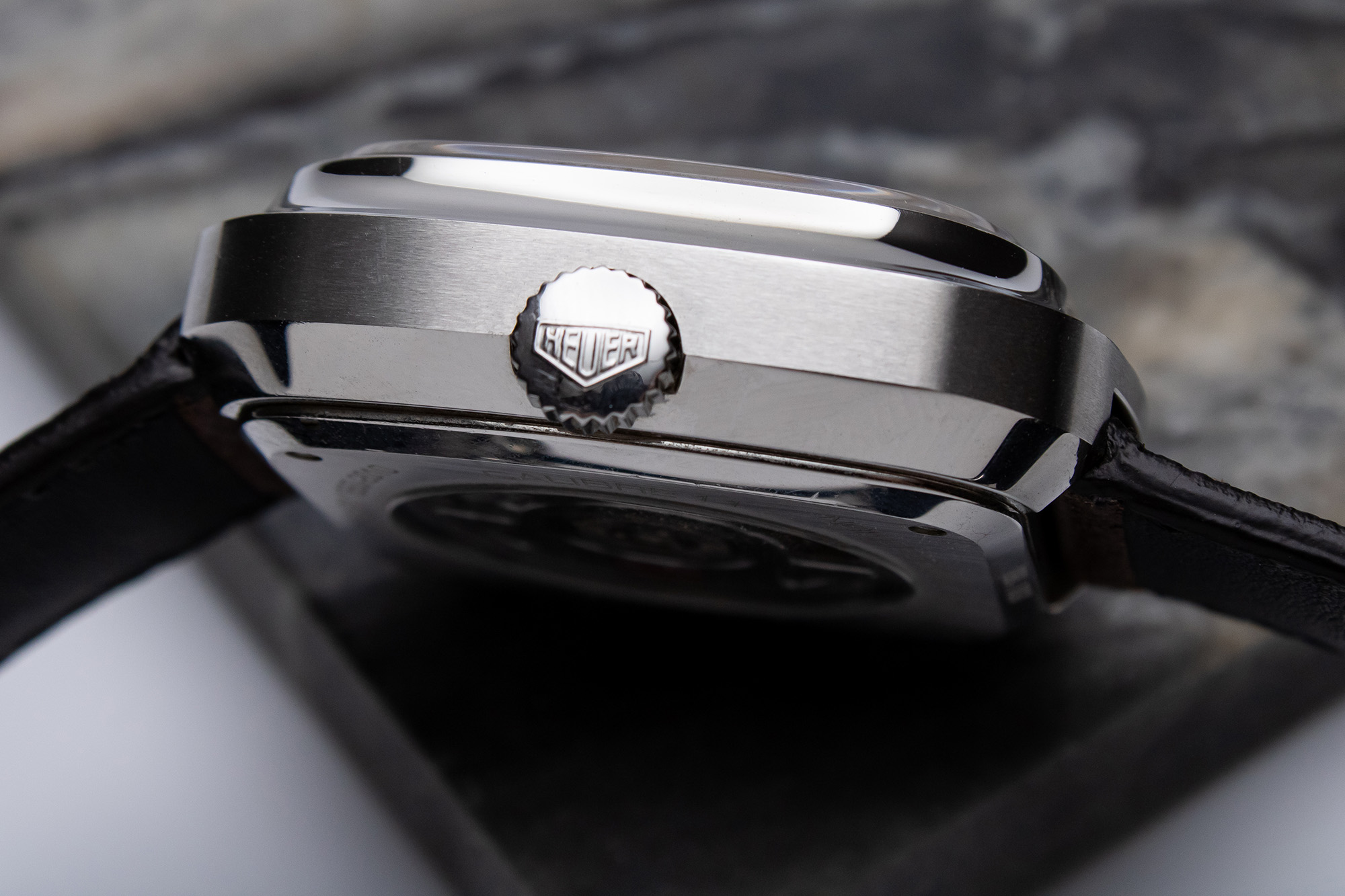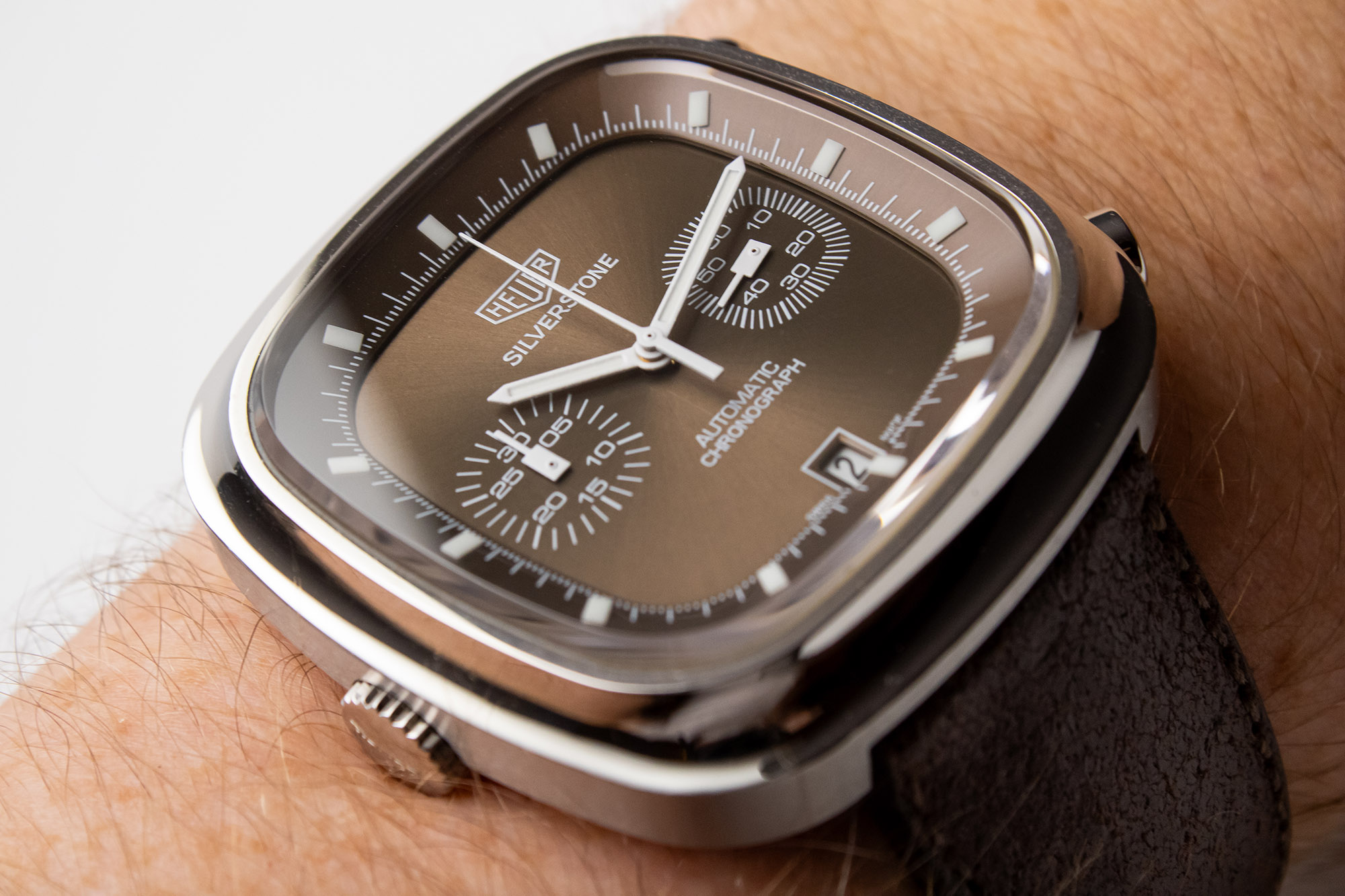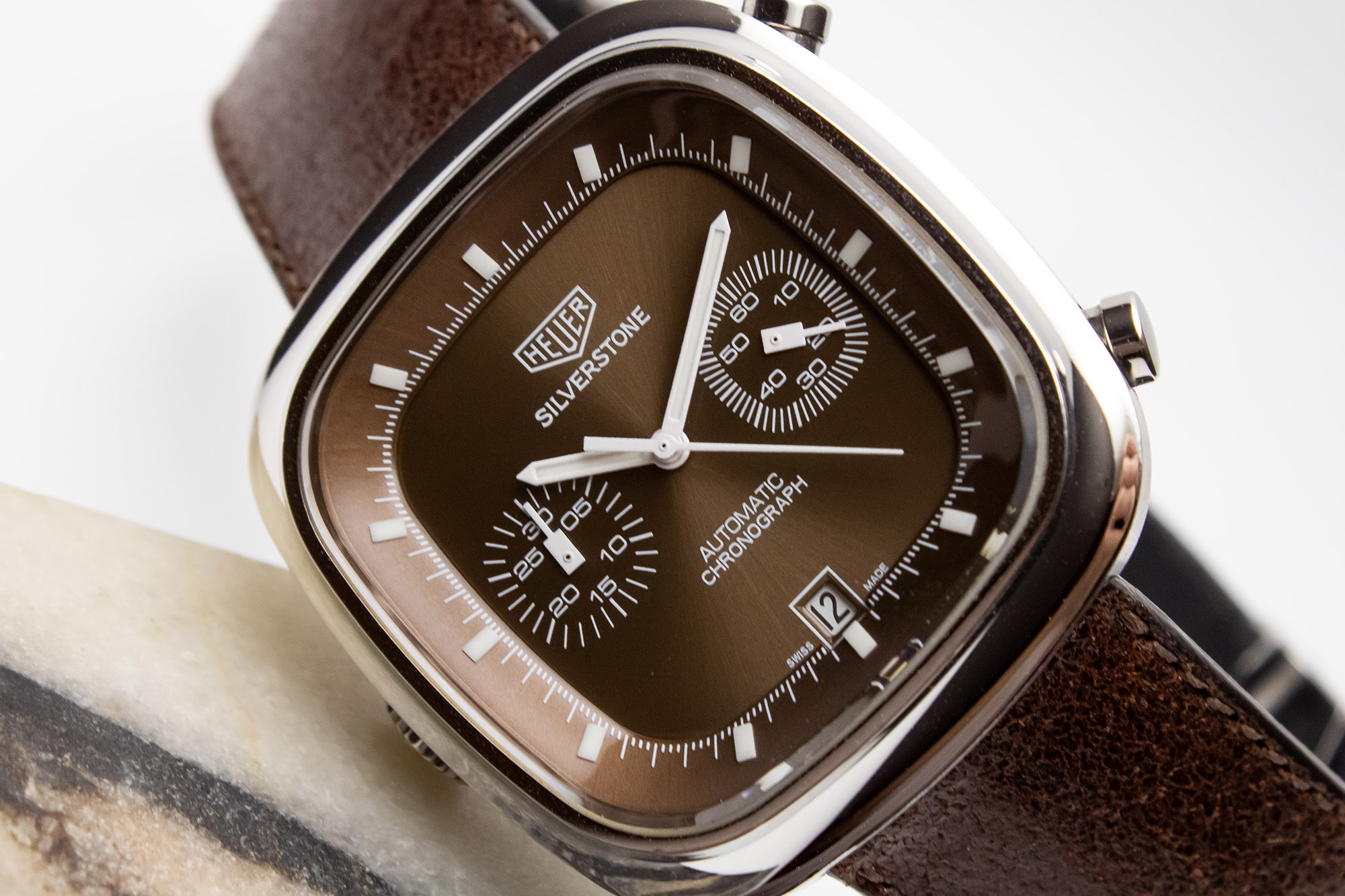
There is perhaps no more overused term in the watch enthusiast lexicon than “iconic.” The idea that some watches are so beloved and influential that they become Platonic ideals is common in enthusiast circles, and there’s no shortage of collectors who fear deviating from the same handful of iconic models and making “the wrong choice.” Of course, there are no right or wrong choices in watch enthusiasm. However, that doesn’t make the community’s list of pre-approved icons any less real, and when it comes to square watches, there’s no greater icon than the TAG Heuer Monaco line. Nowadays, the square-cased chronograph design is almost universally appreciated and has become nearly synonymous with the brand. That wasn’t always the case, however. While the watch was a moderate success on its debut in 1969, the brand (then simply Heuer, the TAG prefix wouldn’t arrive until 1985) was ready to replace it with a new model by 1974. That replacement, pitched as an evolution to the core squared-off Monaco silhouette, lasted only a few short years in the catalog before being unceremoniously axed and (long after the fact in 1997) replaced by a revival of the very same Monaco it was intended to supplant. To say the Heuer Silverstone has a complicated place in the brand’s extensive legacy is something of an understatement, then, but it’s also a potent, charming reminder of the strength of “icon-adjacent” timepieces: watches without any of the cultural baggage of their more popular siblings, but with similar provenance, far rarer production runs, and oftentimes even more compelling designs.
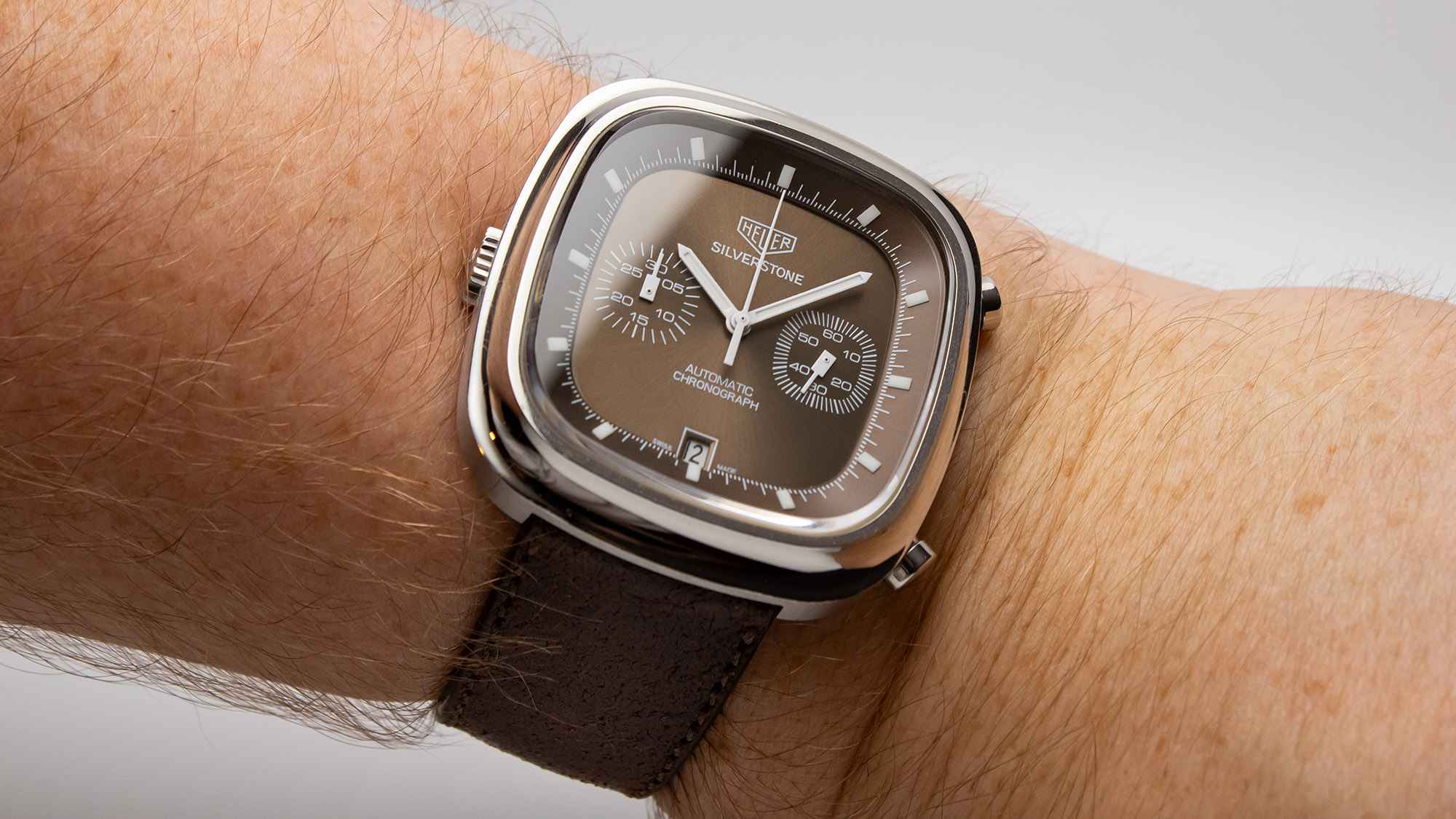
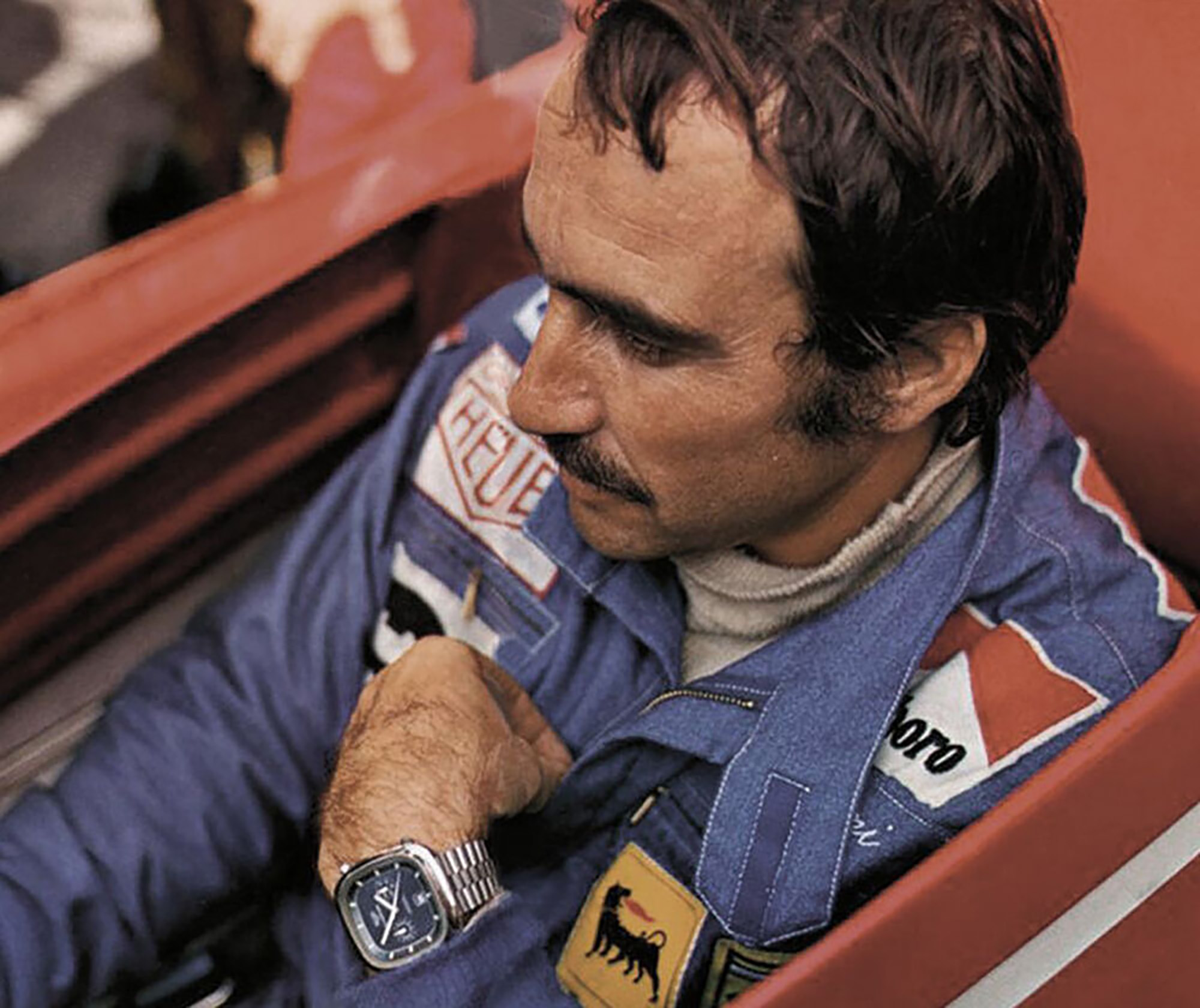
Clay Regazzoni sporting a Heuer Silverstone in the cockpit of his Ferrari 312B3 during the 1974 Formula One season. Photo courtesy of Uhrentick.
First introduced in 1974 as Heuer and the other Chronomatic Group brands (namely Breitling, Hamilton, Buren, and Dubois-Depraz) began replacing their inaugural Calibre 11-equipped automatic chronograph models with fresh looks for the mid- ‘70s, the Heuer Silverstone takes the square profile of the Monaco and streamlines it, replacing the Monaco’s hard edges with flowing, organic curves and simplifying extraneous elements like the lugs into a more unified whole. In practice, the Silverstone fared little better in the marketplace than the Monaco it replaced. However, it did find notable success in the motorsports community, where Swiss-born Ferrari Formula One driver and Heuer ambassador Clay Regazzoni made a blue dial Silverstone his watch of choice throughout his stint with the team. Despite this, by the late ‘70s, the Silverstone was losing steam among buyers, and after being quietly discontinued around the turn of the decade the Silverstone nameplate was revived for a substantially different, short-lived, Lemania 5100-powered chronograph in 1983. After that, the Silverstone badge disappears beneath the sands of time, returning to the brand’s stable only for a limited-edition reissue to celebrate TAG Heuer’s 150th anniversary in 2010.
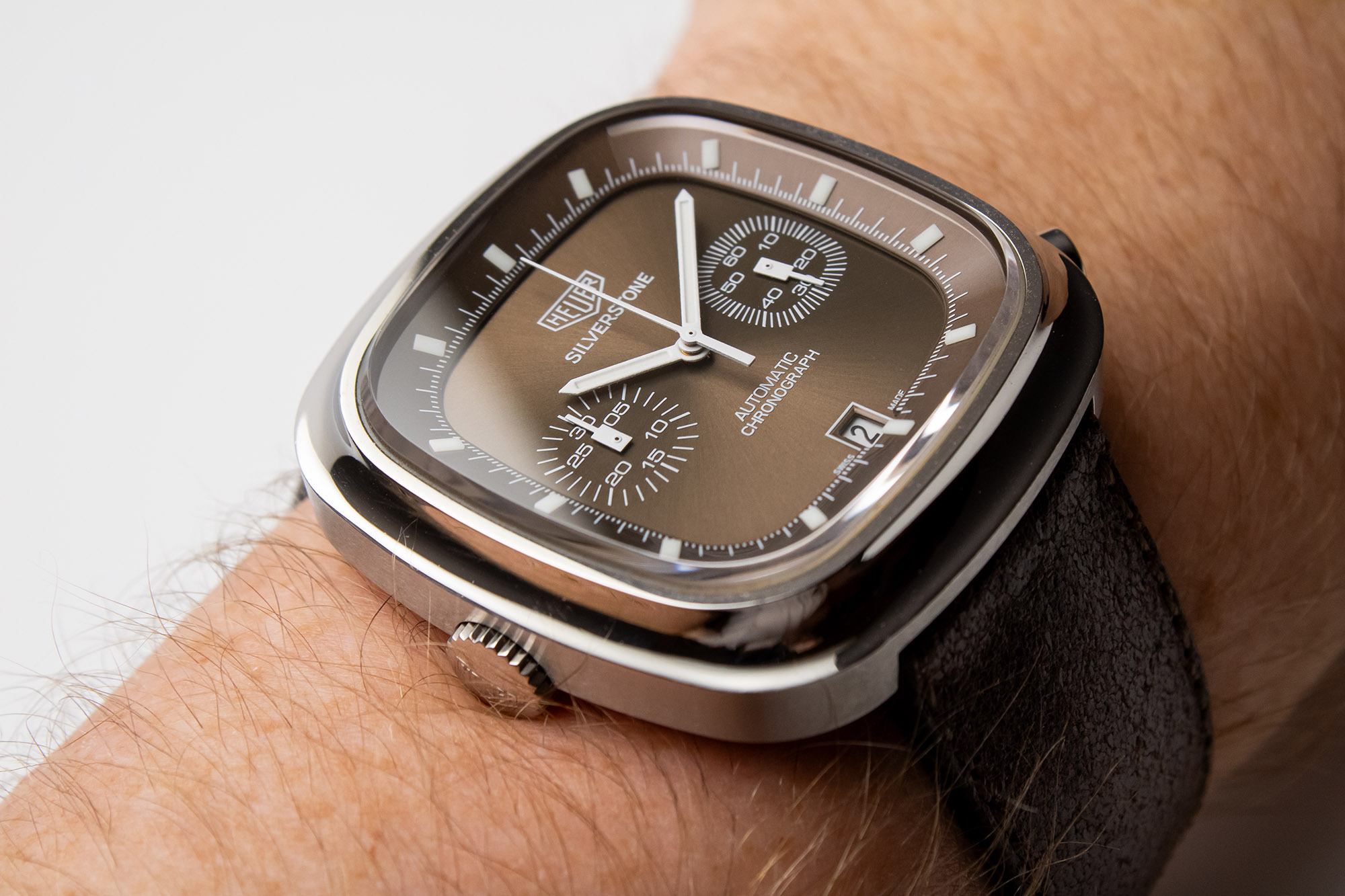
The watch featured in this article is one of those 2010 reissue models, one of only 1,860 produced in this colorway. Apart from the modern movement, the 2010 TAG Heuer Silverstone is a fastidious recreation of the 1974 original, beginning with the near-identical stainless steel case design. Looking purely at the numbers, this is a substantially larger watch than the Monaco at 42mm wide, but as is so often the case numbers fail to tell the full story. In real-world terms, the Silverstone carries a very similar wrist presence to its more famous cousin, and this svelte wearing experience comes down to a handful of factors. The first of these is almost deceptively obvious – there are no lugs. This is a true lugless square case design, which means that its lug-to-lug length is the same 42mm measurement as its width. This keeps the Silverstone from taking up an undue amount of real estate on the wrist, while still allowing it to carry the sort of beefy visual punch ‘70s chronographs do best. In addition, the brand’s rather unorthodox use of concave surfacing changes the Silverstone’s perceived proportions. Rather than following a more traditional convex contour outwards and upwards to meet the crystal, the tall polished bezel cuts inward in a rather dramatic slope from the outer edge of the mid-case. When coupled with the mirror polishing on this prominent element, the Silverstone seems to contract tightly around the dial when viewed from above but visually expands to its more substantial full dimensions when seen at an oblique angle. It’s an almost funhouse mirror-esque effect in practice, and it allows the case to feel both manageably compact and pleasingly hefty at the same time. With that said, it’s an undeniably tall case, and the broad, vertical mid-case with its straightforward brushing does little to mask this height on the wrist. The simple piston pushers and the distinctive recessed crown at 9 o’clock are telltale signs of the (modern) Calibre 11 movement within, but the pushers lack the bold gear-toothed cutouts of the original model’s pushers. The 2010 Silverstone’s largest deviation from its forebear, however, is its caseback. TAG Heuer adds a limited edition engraving and a sapphire display window here, showcasing the attractively decorated movement within.
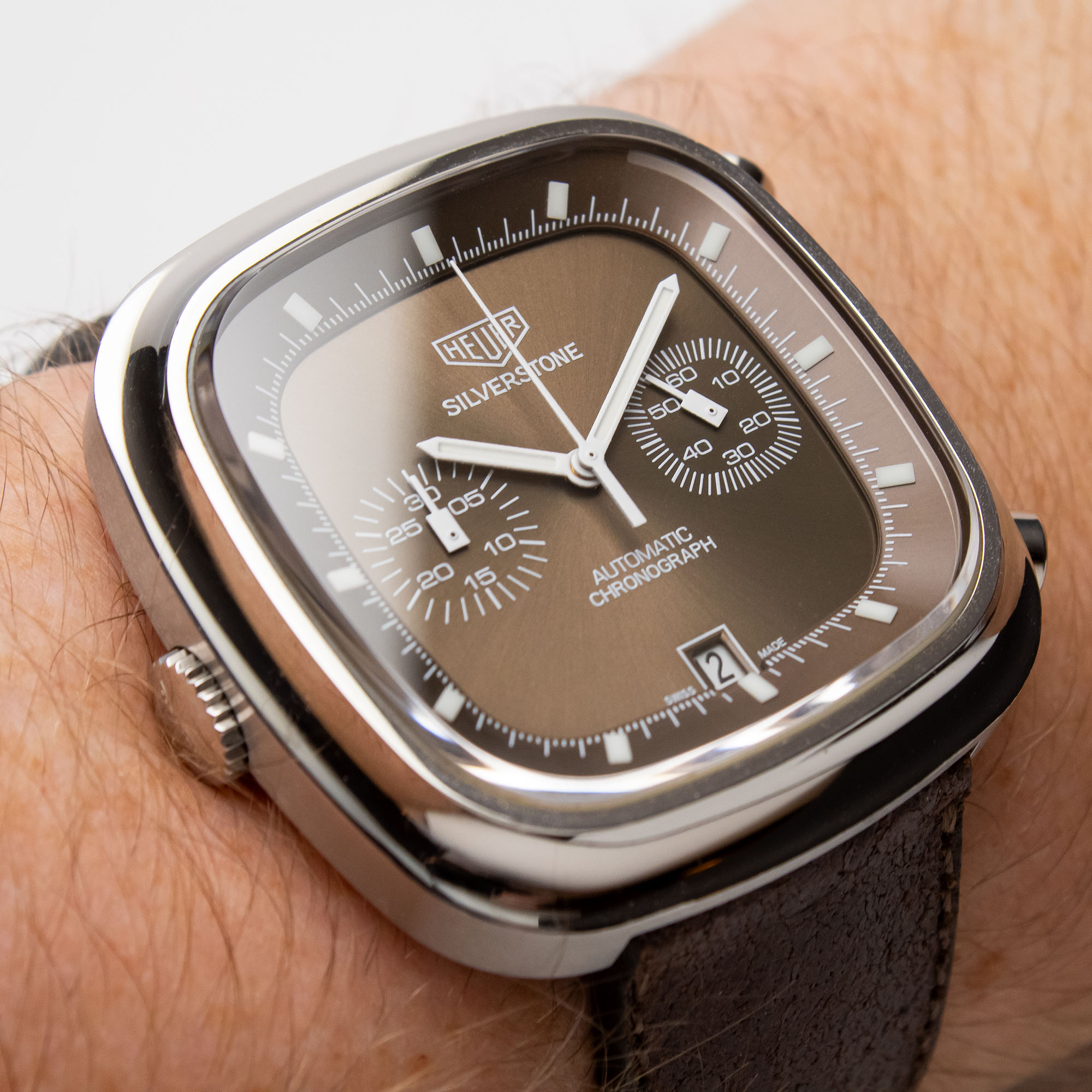
Compared to the graphic, circle-in-square embellishment of the Monaco’s dial, the TAG Heuer Silverstone’s dial is clean and streamlined. However, it’s anything but simplistic, and the visual flourishes that are here firmly root the design in the plush, audacious feel of ‘70s luxury. Take, for example, the chapter ring. All the printed hours, minutes, and seconds markers are confined to this outer edge of the design, but TAG Heuer gives this scale a rich, broad, sloping surface to fill, finished in deep, glossy metallic chestnut brown. Without any scales or major markings, the matching brown sunburst main dial surface feels airy and spacious, with a focus on preserving a uniform texture that stretches cleanly through the printed rounded-square subdials at 3 o’clock and 9 o’clock. TAG Heuer keeps this gloriously ‘70s-luxe brown colorway from becoming muddled or overpowering, thanks to a uniform neutral white tone used for everything from the dial text to the straight sword handset. In a more pedestrian color, this elemental brown and white color palette might feel empty or boring without more vibrant accents, but in brown (or the also-available matte steel blue or Bordeaux red) it comes off as sumptuously refined.
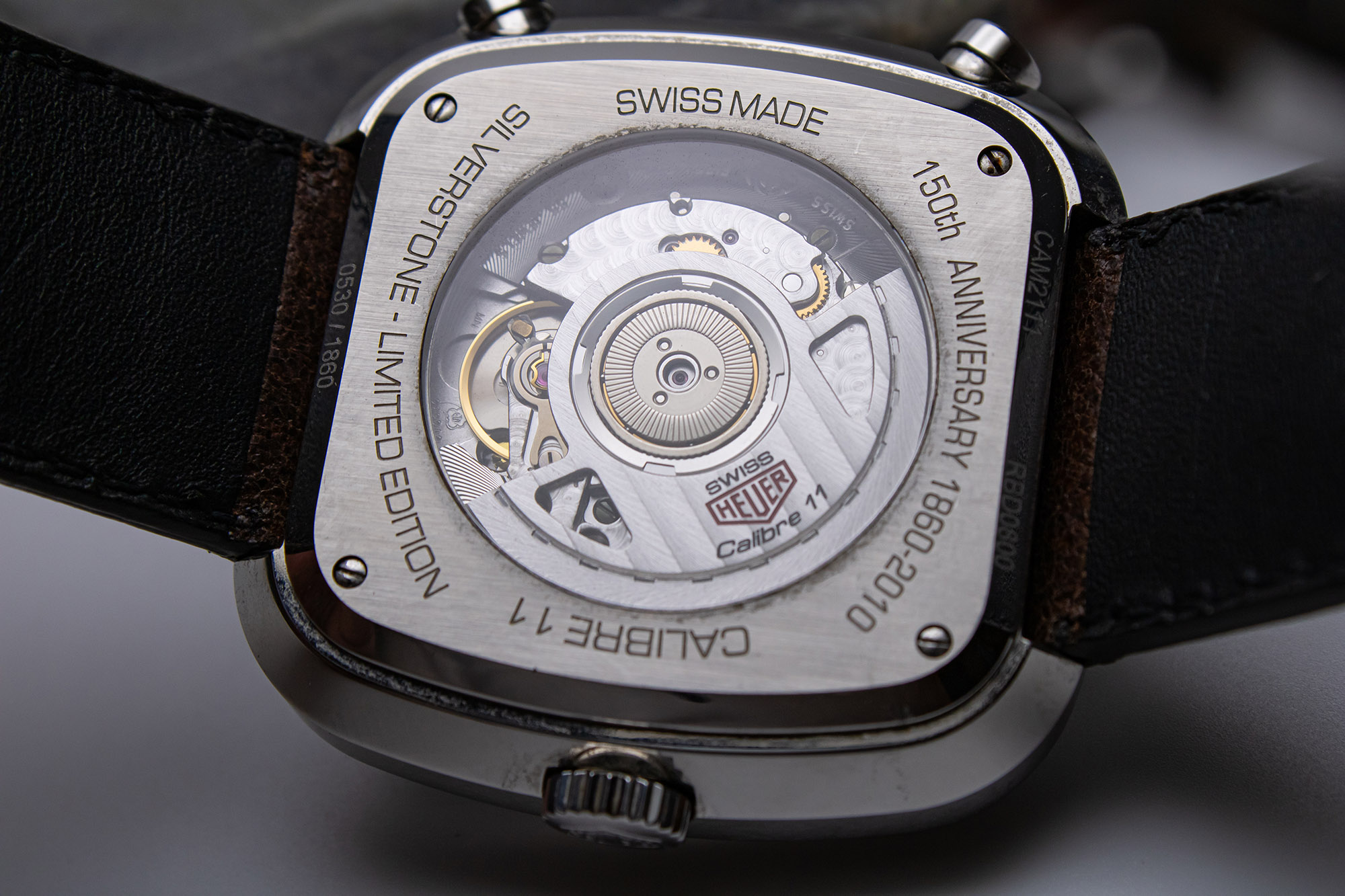
While the 2010 TAG Heuer Silverstone may use the same Calibre 11 nameplate for its automatic chronograph movement as its ancestors did, the contemporary Calibre 11 is a very different beast. The original Calibre 11 (and to a lesser extent, the revised Calibre 12 that supplanted it in the early-mid ‘70s) was a fragile, cutting-edge piece of technology for its time, with a micro-rotor base movement mated to an occasionally finicky separate chronograph module for packaging reasons. The contemporary Calibre 11 is also modular, but based on a reliable, commonplace Sellita base movement and a far more robust Dubois-Depraz chronograph module. It may not have the in-house cache of its ancestor, but the modern Calibre 11 is a far easier movement to live with and repair, and in terms of finishing, it’s truly attractive. TAG Heuer mates broad perlage for the bridges with Côtes de Genève for the cutout rotor, leading to a bright and dynamic look in most lighting conditions.
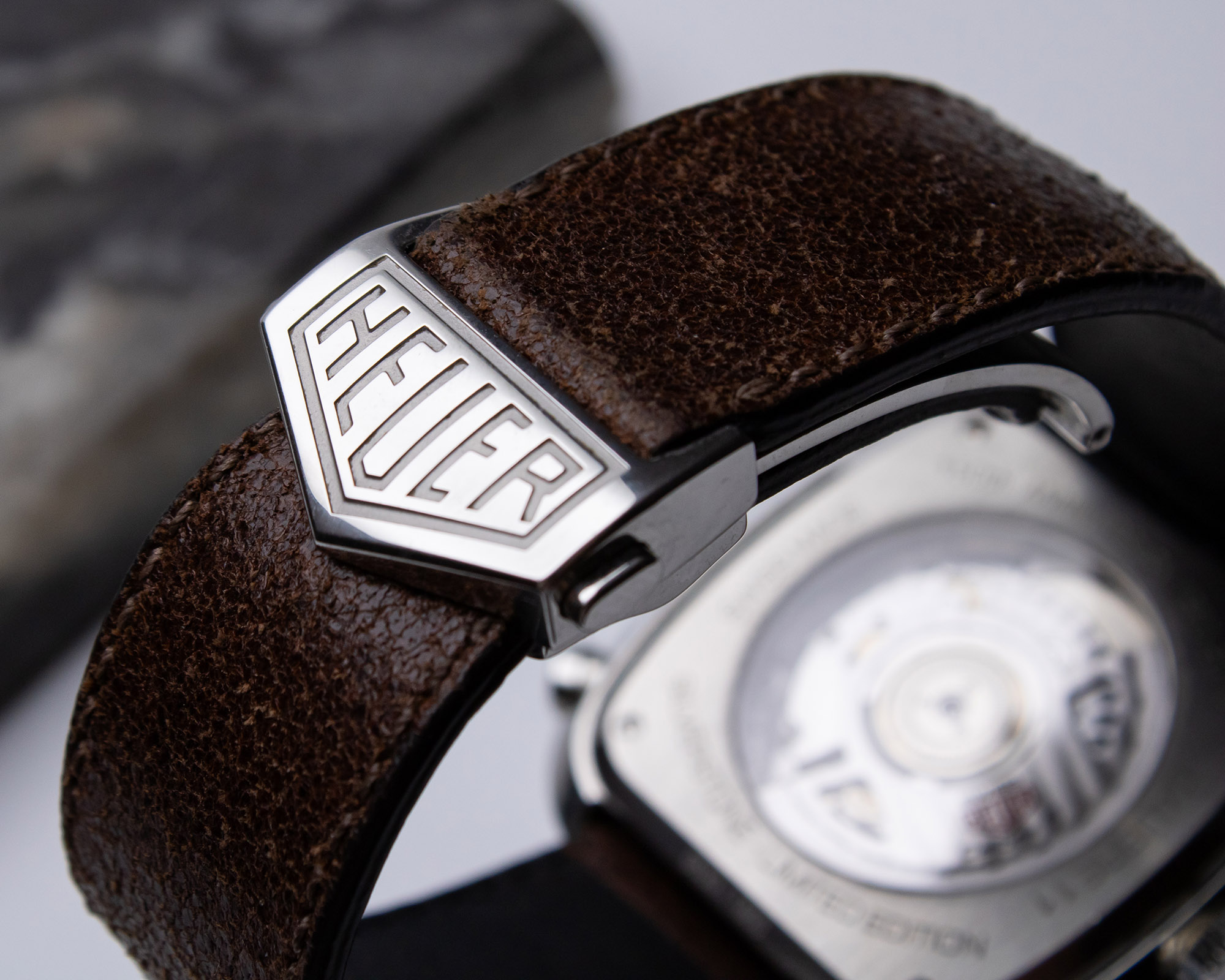
This particular TAG Heuer Silverstone has been swapped to a third-party leather strap in order to preserve the aging factory alligator leather strap but maintains the original Heuer shield deployant clasp. This clasp has since become a staple for the brand’s heritage-focused offering, but at the time of this watch’s release, it was still a relatively fresh addition to the lineup. While not technically accurate to the ‘70s original, it’s the sort of small quality-of-life improvement that can give reissues a tangible edge over their original inspirations.
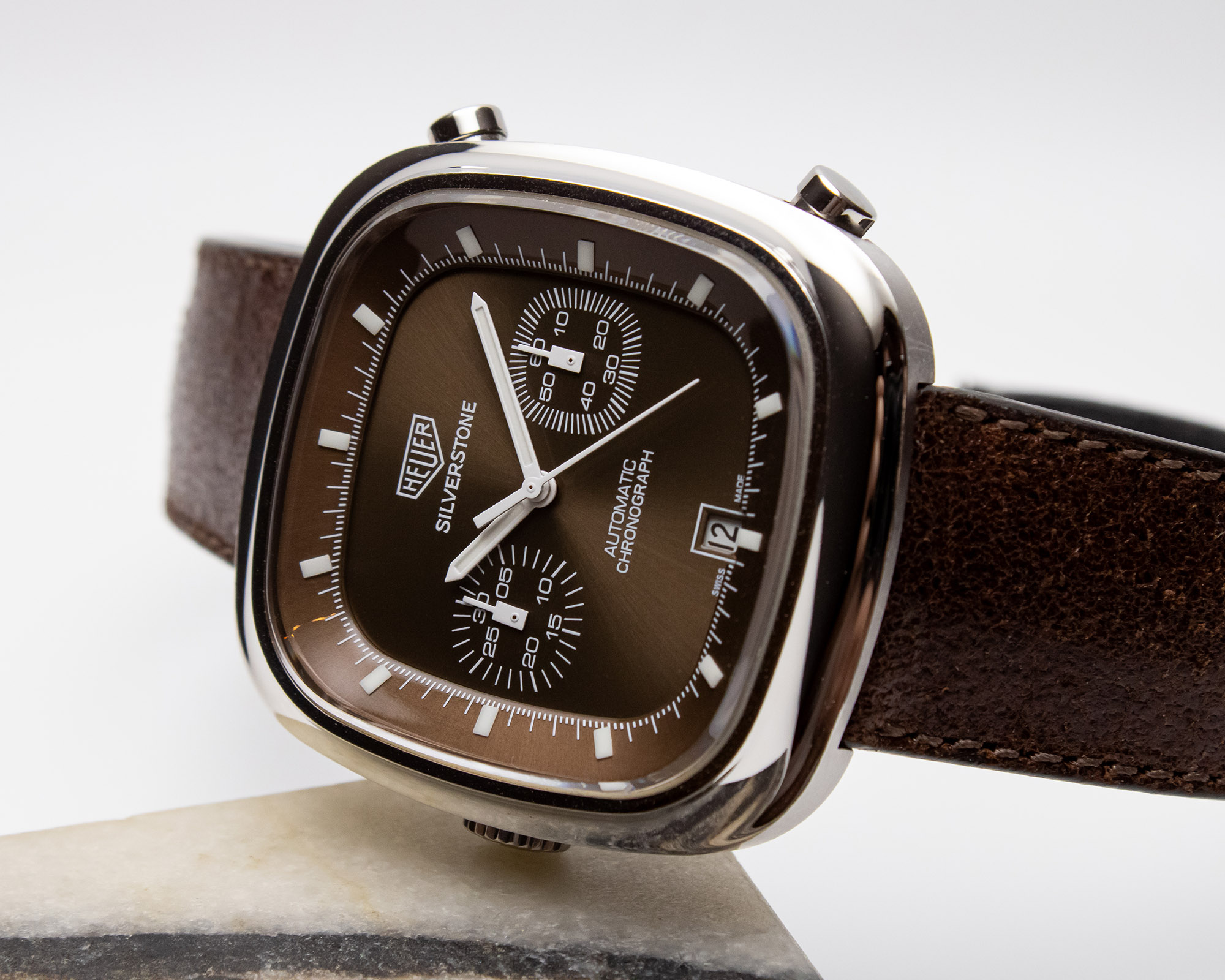
It’s not an easy choice to look beyond the safe, established icons when first diving into the luxury watch hobby. Some timepieces are undoubtedly classics for a reason, but oftentimes the most fascinating, overlooked, and under-the-radar choices lie just to the side of those classic icons. The 2010 TAG Heuer Silverstone is shining proof of this principle in action, and a true “IYKYK” favorite among the Heuer cognoscenti in its own right. Most importantly, it’s a fine example to us all as enthusiasts that sometimes, when searching for one of the icons of watchmaking, the most compelling choices can be found by expanding one’s horizons a little.


